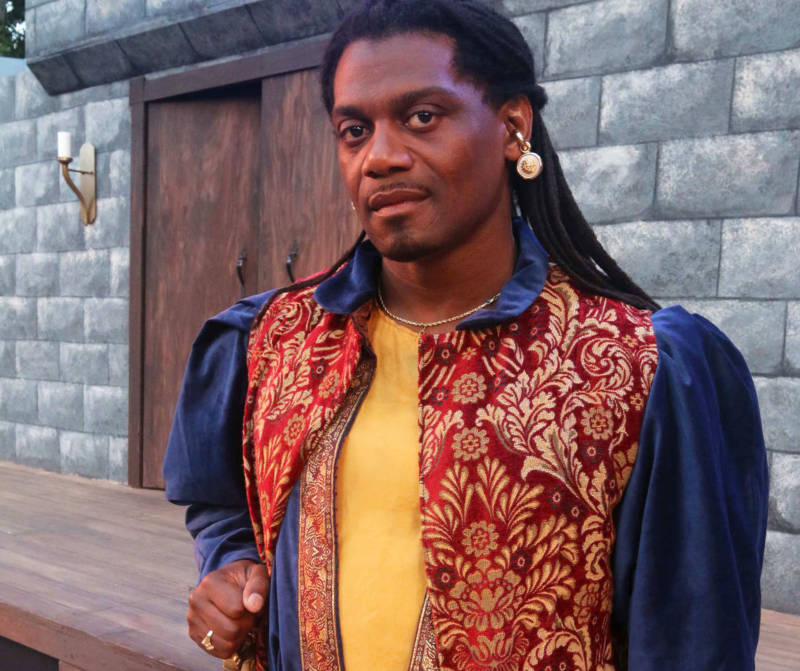DAMEION BROWN: One of the main things is the fact that I had won that lead in junior high. And that production never went on. You’re looking at a 14-year-old black boy with a 14-year-old white girl, in the South. There were strong feelings from the parents -- the African-American parents and the white parents -- of how they wanted their children to interact in a play such as that. So that performance never took place. And it was something that stuck in my mind a long time.
So, now you're getting a chance to play Othello, finally. How do you establish an emotional connection to this character, from a play written almost 400 years ago?
BROWN: That is the easiest part. Life experiences prepare you for the ebbs and flows of emotion. I understand betrayal. I understand confusion. I understand jealousy. I understand the pain of harming someone you love. I don't have to dig deep to get in touch with those things, because they make up who I am. Had it been a comedy, that would have required a lot more work from me!
You mention understanding the pain of harming someone you love. I know that you were sentenced to life, basically for being physically abusive to your own kids.
BROWN: Yes. And it is indeed a fact: I believed in corporal punishment. And I did inflict corporal punishment. It’s also a fact that I was charged with certain things, and I was convicted of certain things. But it is also a fact that the things which I did have not been presented in the right way. What was true was that I was very physical with my children, because I understood that to be the way that a parent reared a child -- with the switch, with the belt -- because this is what I knew, coming from the South. Over time, I learned better.
You were charged with harming your 3-year-old daughter, and leaving her disfigured. Those are pretty serious charges.
BROWN: Very serious charges. And it was a very real conviction. And it was a very real 23 years that I spent. But a very inaccurate story of what occurred.
So what did occur?
BROWN: It was neglect. Trying to do all these things at once. Trying to prepare for a job interview, trying to answer the door, trying to feed some of the children, trying to bathe some of the children, trying to get a bottle into the bedroom with my newborn with my wife. And forgetting I had a child in the bathtub. When these accidents occur, and someone looks and says, "Well, you switch your children, you whip your children, you leave marks on your children," you lose all benefit of the doubt that an accident could occur.
You were paroled after 23 years, and the parole board eventually did agree that you were reformed. And the arts were a part of that, right? You participated in a Shakespeare production while you were serving time.
BROWN: Macbeth. And it was a very good thing. I learned a lot. Sometimes, through an examination of another life -- even if it be a fictitious character -- it is impossible that at 2 in the morning when you're in the solitude of your own thoughts, you can’t identify with the parallel that exists within yourself.
Outside of acting, you have a job mentoring young people who are at risk. Are any of them going to see you in Othello?
BROWN: Definitely. They have all expressed great interest in coming to see it. I want them to see that someone who did 23 years in prison, who is still sometimes thought of as some of the Venetians thought of the Moor, can achieve this. And let them know it’s OK to try something different. You don’t have to cuss all day. I can say “thee,” “thou” and “thither.” Broaden your horizon.
Your own life has had some Shakespearean twists. You're now out on parole. I understand you're married now, to a woman who was a former guard at Soledad. It's all kind of Shakespearean.
BROWN: Yes, we live these comedies and these tragedies, and they are the ebbs and flows of life. There was a time when I thought that I would never be out of prison. There was a time when I thought that I would never be married. But none of those things have lasted. And Shakespeare allows me to remember, and to be OK with, the ins and the outs. The rises and the falls of things.
This interview has been edited for brevity and clarity.
